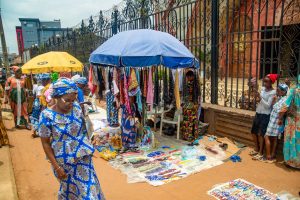
Weaving a Sustainable Future: The Rise of Fiber Companies in Africa
Weaving a Sustainable Future: The Rise of Fiber Companies in Africa is a growing trend that is transforming the continent’s textile industry. With a focus on eco-friendly practices and renewable energy, these companies are paving the way for a more sustainable future. In this article, we will explore the rise of fiber companies in Africa and their impact on the environment.
Africa is home to a diverse range of fiber crops, including cotton, hemp, and flax. These crops are not only a vital source of income for many farmers but also provide a sustainable alternative to synthetic fibers. Fiber companies in Africa are now using these crops to produce a range of products, from clothing and textiles to paper and packaging materials.
One of the key benefits of fiber companies in Africa is their focus on sustainability. Many of these companies are using renewable energy sources, such as solar and wind power, to power their operations. They are also implementing eco-friendly practices, such as reducing water waste and using natural dyes. This approach not only helps to reduce the environmental impact of the textile industry but also provides a unique selling point for companies looking to appeal to environmentally conscious consumers.
The Benefits of Fiber Companies in Africa
The rise of fiber companies in Africa has numerous benefits, both for the environment and for local communities. By providing a sustainable alternative to synthetic fibers, these companies are helping to reduce the amount of waste and pollution in the textile industry. They are also creating jobs and stimulating economic growth in rural areas, where many fiber crops are grown.
In addition to the economic benefits, fiber companies in Africa are also helping to promote cultural heritage and traditional crafts. Many of these companies are working with local artisans to produce traditional textiles and clothing, which helps to preserve cultural heritage and promote cross-cultural understanding.
Challenges Facing Fiber Companies in Africa
Despite the many benefits of fiber companies in Africa, there are also several challenges that these companies face. One of the main challenges is access to financing, as many of these companies are small-scale and struggle to secure funding. There is also a lack of infrastructure in many rural areas, which can make it difficult for companies to transport their products to market.
Another challenge facing fiber companies in Africa is competition from synthetic fibers. Synthetic fibers are often cheaper and more widely available than natural fibers, which can make it difficult for fiber companies to compete. However, many consumers are now becoming more aware of the environmental impact of synthetic fibers and are seeking out sustainable alternatives, which is helping to drive demand for natural fibers.
The Future of Fiber Companies in Africa
The future of fiber companies in Africa looks bright, with many companies expanding their operations and investing in new technologies. There is also a growing trend towards certification and labeling of sustainable fibers, which is helping to provide consumers with more information about the environmental impact of their purchases.
In addition to the growth of the fiber industry, there is also a growing trend towards sustainable fashion in Africa. Many designers are now using sustainable fibers and eco-friendly practices to produce clothing and textiles that are not only stylish but also environmentally friendly.



